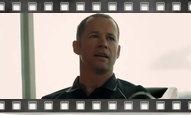2001: Living it up in Amsterdam
While the pop of the US tech bubble was still putting a damper on Internet growth, some Kiwis were partying it up in Amsterdam as if our smaller bubble would never end. It did.
Track of the Year 2001

HDU - Schallblute (Fire Works - 2001)
Originally known as High Dependency Unit, as they honed their name down to the acronymatic HDU so too was their sound refined and perfected. “Schallblute” kicks off on one memorable guitar riff soon joined by a gentle bass underhinge and sharp precise drumming. Then the foot is removed from the pedal (but which one? there are so many) before the final onslaught builds and some distant vocals dramatically fade into consideration. Watch the great but little viewed video. - Roger Shepherd
[ Watch Video ]
Track of the Year by Records
The sound of a small bubble popping
Despite our own '90s tech boom never escalating to anywhere near the heights of the USA, a year into the new millennium the after effects of overseas markets contracting hit home for some local Internet companies. This was particularly the case for those that had grown through offshore expansion.
One high-profile example was the web design company WebMedia. Back when most company websites were still being built by the owner's tech-savvy nephew for a pittance, a few large web design companies with 40+ employees had managed to develop. When they went the same way as their US dotcom brethren, it would be nearly a decade for web design agencies of their size to be seen again. From the fallout though, a number of smaller companies were formed that would go on to win awards and build some of our most loved sites.
In early 2001, the good times seemed set to continue forever for the darlings of the local web design community. In Auckland they partied it up at ‘Grok’ (geek for ‘to understand’) parties, organised by publisher IDG to imitate the pre-crash high-life in tech communities such as San Francisco. Being a geek was finally (as) sexy (as it would get).
In April, WebMedia rewarded its 45 employees by flying them to Amsterdam for a knees-up, taking their own DJs and journalists along for the ride. The celebration of their hard work and worldwide recognition, particularly in Europe, was unbeknownst to the them actually their last hurrah as they were forced to close down after payment for a major contract fell through a few months later. One staffer said later, "What do you mean a million-dollar, ultra-designed, multi-lingual music sales site built in Flash isn't going to be an overnight success?! Oh, you did the deal on a handshake too? Good luck with that".
From Napster to BitTorrent
2001 was a bad year even for Internet ventures not built to make money. Napster's brief time in the sun came to the end with a parade of lawsuits. It would re-emerge as a paid service a year later, but as we had flocked to it only because it was free, we soon turned elsewhere. Technology came to the rescue with the launch of BitTorrent. At first it was used to replace Napster as our go-to technology for acquiring music, but as more of us got broadband, it would impact the bottom line of movie studios in the same way Napster had turned the music industry on its head.
Not even the printed word was safe in 2001 with the launch of Wikipedia, the user-generated encyclopedia. For the first few years, the content was far from comprehensive – not yet the cut-and-paste solution to homework that students love and teachers loathe today. But New Zealanders soon found entries relevant to our interests and helped to grow it into the site it is today.
Cheaper, but slower broadband
We could, at least, all comfortably load Wikipedia on our Internet connections in New Zealand. BitTorrent, however, was another matter as it enforced sharing of files as well as downloading them. Thankfully broadband solutions were becoming more available and affordable by 2001.
Telecom sought to address cost concerns with its Jetstream DSL service by releasing the ‘Jetstart’ package that offered a flat-rate DSL account – meaning no worries about excess data charges. This was appealing, but the capped speed of 128kbit/sec was only three times faster than dial-up and not even considered broadband by most overseas measures.
Businesses in certain sectors were becoming increasingly willing to pay the price for real broadband, realising that it opened up invaluable ‘digital trade routes’ nationally and internationally. For many, a major broadband selling point was that we could ship large files off to the likes of printers - displacing expensive and time-consuming physical media and couriers.
Business-to-business successes
As a result of advantages such as this, businesses were starting to flock to the Internet; 1200 new domain names being registered a month. By the end of the year, there were over 100,000 .nz domains registered, mostly in the commercial space. Many were put off business-to-consumer plays by the dotcom bust, concentrating instead on delivering or utilising online business-to-business services.
These services and sites targeted at business users - especially those that used the web as a low-cost delivery mechanism would emerge over the next few years as a second bubble, to become known as web 2.0 by the middle of the decade.
There were visible business sites like NZ Stock Exchange's new site that made it easier for investors to track their portfolio's performance, and New Zealand Trade and Enterprise newly launched directory of NZ exporters. But behind-the-scenes uses of the Internet were starting to emerge. What would have been proprietary network services a decade prior were now zipping around the Internet with regular traffic.
Government support services
As well as supporting business with the likes of the NZTE export directory the government also funded projects that were big hits with tech-savvy youth in 2001. NZQA's site redevelopment, for example, allowed students to repeatedly hit refresh on their browser rather than wandering up and down to the letterbox in anticipation of their bursary results.
Financial advice site Sorted launched this year, immediately winning awards from the likes of Netguide for its online calculators – the now all-too-familiar mouse mascot there from day one.
Kiwi “Big Brother” online
Just a couple of years after launch, Trade Me was picking up steam. As today highlighting interesting auctions was a traffic drawcard. In 2001 one such case was the auction of computing gear used by the Kiwiflatmates website that had closed down earlier that year.

The number of dot.nz domain names registered by May
By May 2001, the number of dot.nz domain names clicks past the 100,000 mark, a growth of 25,000 on the previous six months.
Launched in mid-2000, Kiwiflatmates had been our very own Internet ‘Big Brother’, allowing site visitors to view the lives of a set of flatmates in an Auckland villa through a set of webcams. We could chat live with the contestants (the now clichéd weekly expulsions from the online show would lead to a winner) and even follow them into the spa and bedrooms… for a $20US/month fee.
Objecting to the priceyness of this digital voyeurism, local hackers saw fit to break into the site and liberate the paid video streams for anyone to see. With a manifesto that objected to the ‘unoriginal idea’ and the media's attention on the larger IT players over what they perceived as more interesting ventures outside the mainstream, the hackers mostly succeeded in getting the venture extra promotional mileage with the stunt before the series was cancelled.
It seemed that New Zealanders had better places to spend their money online. The sight of Amazon.com packages arriving at homes and workplaces was becoming increasingly commonplace, even if the NZ dollar was worth nearly half of what it is today against the US dollar. Buoyed by this local operators would start to get back into business-to-consumer plays in the next few years.
What were your
Kiwi Websites of the Year?

Scoop News [b.1999]
It's the best New Zealand resource for gathering information for study purposes, and also for entertainment and informative purposes. There is soooooo much content which is unavailable through other websites. everything is on there and it seems to be all from the original source. [ View Site ]

iStart - technology in business [b.2001]
iStart was all about turning business on to the burgeoning potential of eCommerce. The .com bubble had burst, but business had only just started to really see the benefits of streamlining processes with integrated technology. iStart brought real stories of businesses who had decided to lead the way for others to follow. [ View Site ]
Tomorrow: Whether broadband or not, mostly not, 60% of us had access to the Internet by the end of 2001. So 2002 saw more of the country getting their shopping online. But which consumers found themselves in a sticky situation?
All
Anecdote
Event




